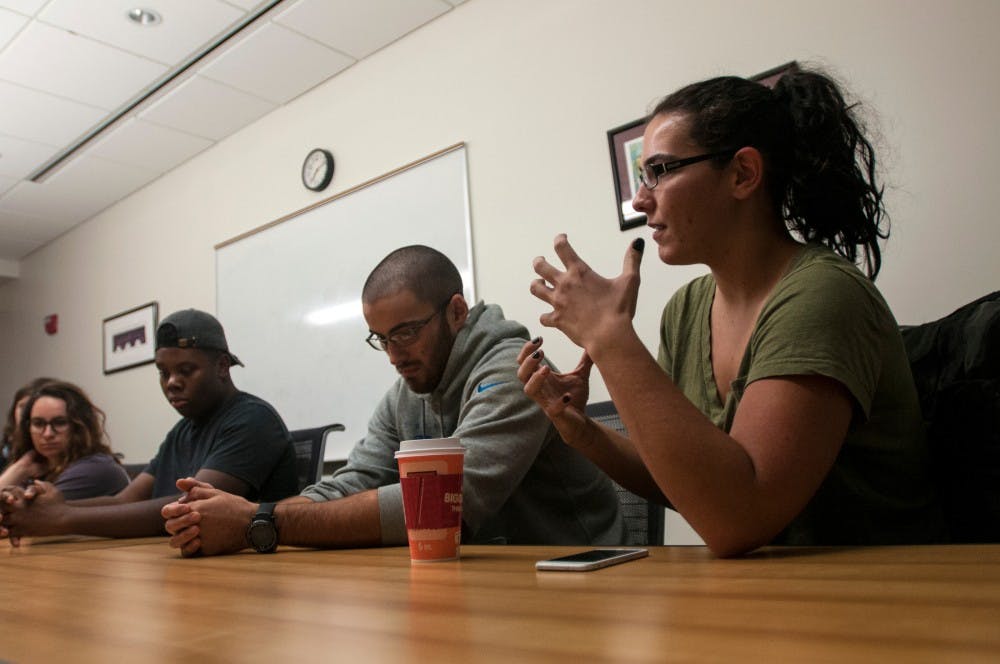Dealing with society’s expectation of what is masculine and what isn’t has had effects on different MSU students.
Doctoral student Mark Hsieh is an avid martial arts participant and hunter, but also loves music and is pursuing a doctorate degree in musical arts, all of which he didn’t choose based on whether it was masculine or not, he said.
“I never grew up learning how to hunt, I never grew up learning how to do martial arts,” Hsieh said. “Those are things that I picked up purely because I was interested in them and had nothing to do with them being masculine traits.”
The generation gap plays a role on how men and women are brought up to view masculine and non-masculine traits, Hsieh said. He said his father is more “old school,” and because of that, he had issues with Hsieh’s sister being a lesbian.
“My dad had an issue with that, he’s a great guy and everything, but that’s the way he grew up,” Hsieh said. “(It took him) a while until he adapted to that, until the rest of my family (said) ‘if you don’t jump on board with this, you’re going to be on the dock by yourself.’”
This cultural difference plays a role in how masculinity is viewed by men and women, Hsieh said, as his dad is from Taiwan.
“Growing up with these very specific Chinese roles that I had to play, like the guy has to do this and the guy has do that and can’t do that,” Hsieh said.
Not agreeing with these principles led Hsieh to find how he fit within society, and ultimately has made him believe society could be evolving with how it views masculinity.
“There’s a lot more gender fluidity nowadays that I’m really happy that the younger generations are starting to recognize, understand, appreciate and accept,” Hsieh said. “I think all in all, just as a general rule, you do you.”
The MSU Women’s Council had a discussion on Monday about the Danger of Toxic Masculinity, both in women and men.
The discussion ranged from how masculinity and ideals affect women and men.
“A lot of men think feminism doesn’t apply for them, but it does,” social relations and policy sophomore Allie Etzin said. Etzin is the president of the MSU Women’s Council.
Etzin said toxic masculinity is relevant to men, and forces them to do things they might not want to actually do.
“Toxic masculinity kind of takes away power from men, saying that they have no control, saying that they have to be powerful,” Etzin said. “It’s chaining them up and putting them in (a) box.”
Etzin said feminism is trying to free men and allow them to show society who they are, and not what society expects them to be.
“It’s kind of enforcing all the gender roles that men are suppose to be tough, the breadwinner, violent, sexually aggressive and it shames them if they’re anything besides that,” Etzin said.
English sophomore Ryan Gandy has dealt with his own experiences trying to break the mold of masculinity set by society.
“Growing up gay ... a lot of the negative stereotypes that come with being gay. ... I almost had to overcompensate to make up for that fact,” Gandy said. “I would have to play into masculinity more so than anyone else.”
Gandy said because he’s more feminine, he had to make sure he didn’t reveal that part of him in order to keep his social status up, especially in high school.
“High school was more like a class system (and) you wanted be on top, it was a lot more political,” Gandy said.
Gandy said he hasn’t have had to deal with that as much at MSU.
“Since it’s more open and more free, you get more freedom — if somebody doesn’t like you, you can basically avoid him as long as you don’t have a class with them,” Gandy said.
Gandy said this is unlike high school in a small town.
“Growing up, if you didn’t like someone and you were in that small town ... you had to deal with whoever was there,” Gandy said.
Applied engineering sciences senior Jocelyn Modelski said society has set the standards for what men have to do in society.
“Sometimes empowering men means allowing them to just be themselves and to be comfortable with themselves,” Modelski said. “Sometimes the societal pressures to be masculine doesn’t allow that.”







